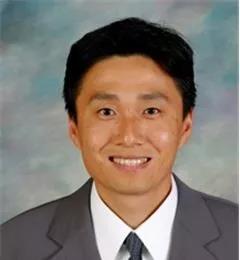癌症治疗的新时代
一名晚期结肠癌病人,在手术和化疗无效的情况下,在St.Jude Crosson癌症研究中心,经过免疫疗法和靶向治疗,取得了成功,病人已经存活两年多了,而且目前状况很好,这是医学史上的奇迹。这给医生和病人更大的信心,在更多癌症治疗上创造奇迹。

2013年,64岁的Don Kwart(见下图)做肠镜发现II期结肠癌,即刻做了结肠癌切除术,随后进行了6个月的化疗。之后影像学检查和血液化验证明治疗有效。但是几个月后,肿瘤复发了并且发生了远处转移,随后又进行化疗,开始还有点反应,肿块有点缩小,但是很快就无效了。

一般来说,手术和化疗失败了,也就预示着有效的治疗方案终结了,病人一般只能存活6到8个月。
美国St. Jude Crosson癌症研究所David Park博士,对Don的癌症进行基因分析,大胆地提出新的治疗策略,采用Keytruda(派姆单抗)进行试验性免疫治疗。

David J. Park, MD, Hematology andOncology (Board Certified)
但是当时美国FDA只批准Keytruda用于治疗恶性黑色素瘤和肺癌。但是,Park博士认为,早先的资料已经显露出Keytruda能治疗像Don这样结肠癌的曙光,因为他们具有相同的基因标记物。
Park博士与Keytruda厂家联系,希望厂家给予病人同情,同意立即提供Keytruda,让病人进行观察性治疗。
Don几乎立即对免疫疗法发生反应,治疗非常有效。“对我来说,这是一个神奇的药物。” Don说:“我比以往几年感觉更好。我应该是Keytruda治疗非常有效的典型代表。”
从Keytruda治疗到现在,已经两年多了,Don的状态非常好。你要找他,可以去棒球场找到他,他儿子是棒球队的先发投手,他一直去看他儿子的比赛。
Don接受Keytruda治疗后的一年,美国FDA才批准了Keytruda可以用于缺乏错配修复功能的任何癌症,这是癌症治疗史上还是头一次。
“治疗癌症,基于肿瘤基因或分子学特征,而不是肿瘤长在哪里-----这是一种典型的模式改变。”Park博士解释道。去年,免疫治疗和靶向治疗的数量翻了一倍,而且治疗的领域比以往更广。只要找到癌症的致命弱点,我们就可以将成功的可能性最大化,同时避免无效的治疗。
在Crosson癌症研究中心,拥有世界一流的肿瘤分子检测设备,对结肠癌、乳腺癌、肺癌、黑色素瘤、头颈肿瘤、胰腺癌以及其他癌症包括复发癌症,进行常规的分子检测。
“免疫治疗和靶向治疗,让癌症治疗接近于治愈水平。”Park博士说,St. Jude已经对十几种癌症开展了基因免疫疗法或/和靶向治疗联合等临床试验。St. Jude Crosson癌症研究所,作为精准肿瘤学联盟成员,已经参与了几个全国性的临床研究项目。
信息来自:
http://www.stjudemedicalcenter.org/about-us/newsroom-and-highlights/highlights/2018/a-new-era-in-cancer-treatment/,文章经过编译整理。
A NEW ERA INC ANCER TREATMENT
Targeted Therapies Bring Dramatic New Successes
Using the body’s own immune system to destroy cancer has been the holy grail for cancer researchers for decades. At the St. Jude Crosson Cancer Institute, the promise of immunotherapies and targeted therapies—designed to help the immune system recognize and kill cancer cells—has moved from the lab to the bedside, with often remarkable outcomes.
Just ask Don Kwart.
In 2013, a colonoscopy revealed the 64-year-old had Stage II colon cancer, and surgery to remove the diseased colon tissue was followed by six months of chemotherapy. While imaging and blood work showed the treatment was successful, several months later, the aggressive cancer had returned and metastasized. More chemotherapy over the next year at first slowed the cancer’s growth—and then simply stopped working.
In the past, the failure of surgery and chemotherapy would signal the end of available treatment options. But after genetically profiling Don’s cancer, David Park, MD, Medical Director of Oncology Services and a board-certified oncologist with St. Jude Heritage Medical Group, offered a new strategy: an experimental immunotherapy, called Keytruda.
Keytruda targets activity within a cancer cell, activity which permits the cancer to protect itself from an immune system response. By “uncloaking” the cancer cells, Keytruda allows the immune system’s T-cells to complete their search-and-destroy mission. The FDA had approved it for melanoma and lung cancer at that time, but not for colon cancer. However, Dr. Park believed the early data looked promising for cancers with the same genetic markers as Don’s.
He arranged “compassionate access” with the pharmaceutical company, allowing Don to immediately begin receiving the investigational therapy. Don responded to the immunotherapy almost immediately. “For me, it’s been a miracle drug,” says the father of five and grandfather of two. “I feel better than I have in years. I should be the ‘poster child’ for Keytruda.”
Once chemotherapy stops working, life expectancy is typically six to eight months. For Don, that milestone was over two years ago. And if you want to talk to him about it, you’ll need to catch him between baseball games: Don’s son is one of the high school team’s starting pitchers and Don never misses an inning.
Over a year after Don began therapy, the FDA approved the use of Keytruda for any tumor with the genetic feature of deficient
mismatch repair (a marker in Don’s cancer)—a first in the history of cancer therapy.
“Treating tumors based on their genetic or molecular characteristics—instead of where they are located—is a paradigm change,” explains Dr. Park, who says the number of immunotherapies and targeted therapies doubled last year with many more in the pipeline. “By finding the Achilles’ heel of a tumor, we can maximize the likelihood of success while avoiding therapies that are unlikely to work.”
At the Crosson Cancer Institute, state-of-the-art molecular profiling of tumors is now routine for patients with colon, breast, lung, melanoma, head and neck, pancreas and other cancers—as well as for patients who have experienced a recurrence.
“Immunotherapies and targeted therapies are moving us much closer to a cure,” says Dr. Park, explaining that clinical trials involving immunotherapies alone, or combined with other treatments, are underway at St. Jude for nearly a dozen different cancers. As the hospital’s board-certified oncologists aggressively pursue new breakthroughs, St. Jude has participated in several national research trials.
The Crosson Cancer Institute is a member of Precision Oncology Alliance, working with other nationally-recognized cancer centers to advance tumor profiling and research to better diagnose, treat and bring personalized precision medicine to all cancer patients.

